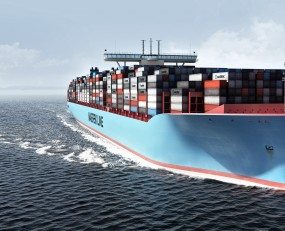
Maersk has suggested that it wishes to expand into other areas of logistics, possibly through acquisition, now that it has clarified its new corporate structure.
In a frustratingly vague interview with the Financial Times newspaper, Soren Skou, CEO of A.P. Moller Maersk, said that the company was looking at sectors “adjacent” to its existing markets, continuing that “there are so many opportunities in services that we are not selling today but that are closely related to what we do”.
Bearing in mind Maersk already owns Damco, a significant freight forwarder with exposure to air and sea freight, its options do not appear to be quite as great as Skou implies.
Unless Maersk is considering buying land or air transport assets, one of the few really substantial areas of logistics services that Maersk is not exposed to is contract logistics. Damco does have a particularly strong load-consolidation operation that enables customers to outsource transport optimisation and the sequencing of consignments but this is not a contract logistics capability. Looking at Skou’s comments it might be logical to suggest that warehousing based services, especially those based in or near ports as part of ‘port-centric’ logistics developments, would be a prime candidate for attention.
For example, a company such as BLG Logistics has been successful in developing a number of distinct contract logistics niches, such as automotive CKD, from its base in container terminal management. Creating such a capability within Maersk ought to be comparatively straightforward.
The margins in contract logistics tend to be better than those in shipping. The profits as a margin of revenue tend to be in the region of 3-5% and contract logistics is much less exposed to the cyclicality of shipping. Return on capital is also higher, not least as property can be leased or rented, although to a major terminal operator such as APMT this may or may not be an attraction.
Of course there are risks should Maersk be attracted to this option. Fundamental to the success of any diversification will be effective strategic management. It is all too common for those from other sectors to buy into contract logistics only to see their investment wasted through overly optimistic expectations.
Source: Transport Intelligence, September 27, 2016
Author: Thomas Cullen